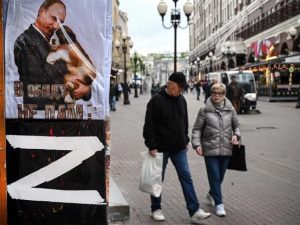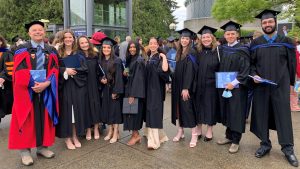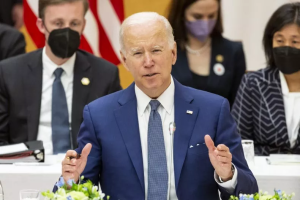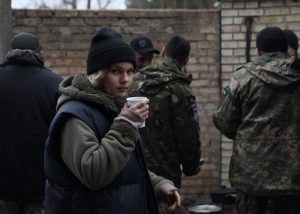Prof. Xiaojun Li’s new book Fragmenting Globalization
In their new book Fragmenting Globalization: The Politics of Preferential Trade Liberalization in China and the United States, Profs. Xiaojun Li and Ka Zeng shed light on the influence of global supply chain integration on domestic and international trade policy, as well as support for preferential trade liberalization.
Surrey Mayor Doug McCallum’s name recognition stands out despite his legal troubles, says Prof. Gerald Baier
McCallum delivered on his two major promises of the 2018 campaign, Baier said, which is to bring in a municipal police force and push for a Surrey SkyTrain over light trail transit.
Prof. Lisa Sundstrom notes the impact of “ordinary Russians” in Russia’s invasion of Ukraine
Though she doesn’t blame Russian citizens for not expressing their discontent, Prof. Sundstrom is also coming to understand that the common Russians have continued to support the Russian regime and its actions despite alternative information sources available.
POLI 2022-23 Winter Courses Now Available on Our App!
Our POLI Courses App for Winter 2022/2023 is now live! Use it to select courses for the new year, see previous syllabuses, and search by keyword or by instructor. Students can pop out straight to the SSC site to get enrolled.
Prof. Kathryn Harrison says that a one-cent-per-litre increase in gas prices is a small price to pay to reduce greenhouse gas emissions
Expanding refineries and low-carbon fuel plans could make BC fuel more expensive, but “to fix climate change, we’re all going to need to be part of that transition (to sustainable energy sources). And I think there’s still a level of denial about that,” Prof. Kathryn Harrison said. “We tend to focus on the costs and not think about the consequences of inaction.”
Scope Conditions Episode 2.9: Israeli Partisan Polarization and Animosity with PhD Candidate Chagai Weiss
In this episode of Scope Conditions, PhD Candidate Chagai Weiss talks about polarization in nations outside the United States, exploiting naturally occurring features of Israeli politics, and the limits of using surveys to learn about the effects of elite behavior and institutions.
Postdoctoral fellow Chris Tenove weighs in on incivility experienced by women and racialized political candidates
Commenting on the influence of online abuse specifically, Chris Tenove notes that social media has become a “billboard where you post stuff and walk away,” but still leave a mental toll on candidates, especially women and racialized individuals.
Congratulations to our 2022 Award Winners!
UBC Political Science would like to congratulate our award winners in undergraduate, graduate and International Relations programs who were recognized at a special ceremony on May 26, 2022 in the Buchanan Penthouse.
Prof. Paul Quirk comments on President Biden’s damaging “gaffes”
Prof. Quirk notes that US President Joe Biden’s gaffes often leave observers wondering “why, despite his generally good strategic judgment, he sometimes blurts out immediate reactions on matters that call for careful consideration.”
Pandemic and Putin turn UBC Political Science student into war correspondent
UBC Political Science student Anastasiia Lapatina has spent the last four months covering Russia’s invasion of her homeland, Ukraine, while studying political science full-time.









